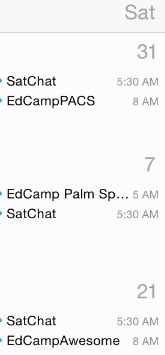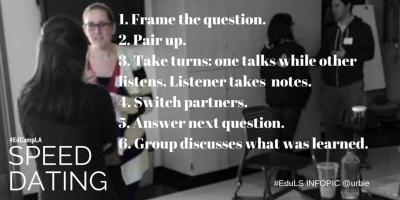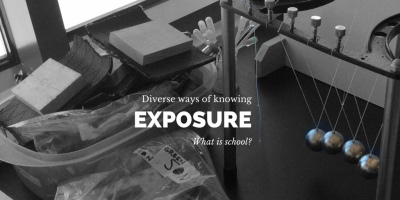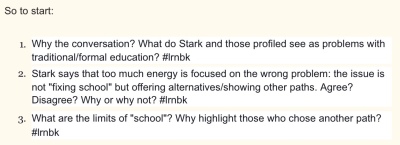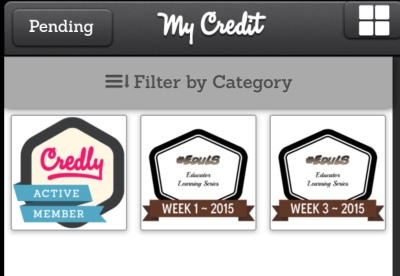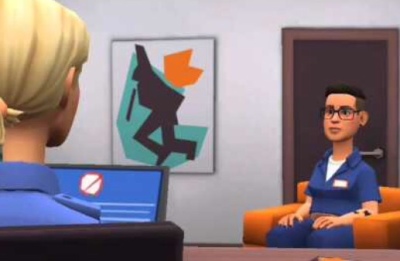PROLOGUE
"Wherever you go that's where you are." -- Buckaroo Banzai
BUCKAROO
I can't be certain. It was so long ago. Maybe it was Roy Rogers? I loved watching Roy and Dale Evans prevail over numerous bad guys most Saturday mornings. There's a lot of the buckaroo in me.
Anyway, I was prepping my professional development (PD) calendar the other day. It looks like I'll be putting in a lot of miles traveling here and there. It got me reflecting on the EdCamps I've attended over the last 18 months aro so; I'm up to 16 so far. I've been at it long enough that the ones coming up, for the most part, are version 2s. I mean that I participated in them last year, too.
I have a few favorites: EdCampPACS is cool because it was there in Gilbert, Arizona last year I realized eachers face many of the same constraints instructional designers (well, at least this one) encounter every day. Last year's EdCampAwesome was, well, awesome. Texas EdCamps are special to me111. The events are great but what really makes them work is the time it takes to travel there and back. It was a 10 hour drive each way to EdCampAwesome from my temporary place in Roswell, NM. It makes for some amazing reflection.
PD
Many times along the way I'd stop, literally in the middle of nowhere, and ideate. Walking or hiking the countryside during these times, being out in the fresh open air, wow how the ideas flow. It helps me make sense of all the new and deeper learning. Sometimes it takes a lot of time for things to come together though.
I first learned about Speed Dating at EdCampSD last October. Having half an idea how it could apply in my practice I included it in my DevLearn presentation later that month. I got some stuff right but missed on a few of the finer points. No worries there. The good people at EdCampLA a couple of weeks ago really put it together into a solid model.
I recommend the unconference EdCamp model as solid PD. EdCamps have been so good for me. I enjoy sharing with the motivated educators that turn out. It was a watershed moment a few months ago when I realized I'm an educator, too. I produce transformational (not boring) learning experiences for adults. This is in the world of learning and development. Instructional designers, at least most of the ones I know, tend not to teach face-to-face. Somehow the perception prevails that to be an educator one must have contact with students/learners.
Maybe it's a fine point. Maybe I still need a thousand miles of reflective thinking before I can get this idea of instructional designers as educators out right. I think that if you're involved, however many degrees seperate you from a student/learner, in helping people learn something new then you're an educator, too. It's more about connections than contact.
EPILOGUE
Happy trails to you.
